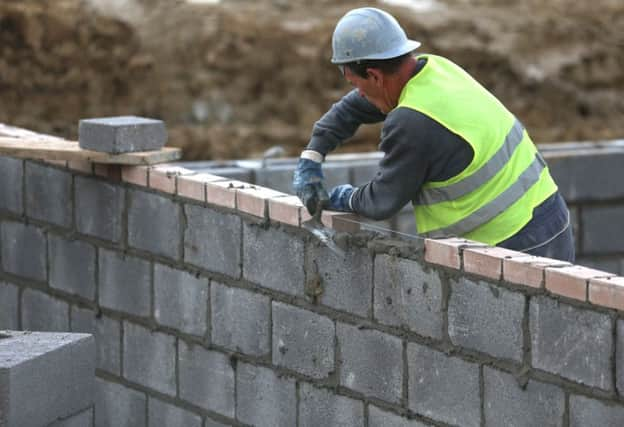Planning rules relaxed in favour of developers


But firms seeking to build homes, wind farms and other sites will have to show they are sustainable and environmentally friendly or face being rejected.
The policy was unveiled yesterday as part of a new planning framework for Scotland.
Advertisement
Hide AdAdvertisement
Hide AdIt will mean sustainable developments are likely to be approved by councils unless there is a significant adverse impact which would outweigh the benefits of the project.
The Scottish Government said the National Planning Framework 3 (NPF3) and Scottish Planning Policy (SPP) would shape long-term economic development in areas such as transport, town centres, energy and infrastructure.
It also said there would be a renewed focus on Scotland’s seven cities as areas for urban investment.
In the plan, ministers confirmed their support for 14 large-scale national developments. These include the regeneration of the Dundee waterfront and the Ravenscraig area, and proposals for carbon capture and storage schemes at Peterhead and Grangemouth.
House-builders said the “presumption in favour of development” was “significant” in helping to plug the gap of Scotland’s housing shortage. Fewer homes than expected are being built as a result of the financial crisis and a shortage of stock pushes up prices in many areas.
Environmental groups gave the policy a cautious welcome, but urged ministers to ensure “sustainability” remained central to its work.
The government defines sustainability as a “development that meets the needs of the present without compromising the ability of future generations to meet their own needs”.
Peter Hutchinson, planning and renewables unit manager at Scottish Natural Heritage, said: “We welcome the protection that the new NPF3 and SPP provide for nature and landscape.
Advertisement
Hide AdAdvertisement
Hide Ad“We further welcome the presumption in favour of sustainable development and the guiding principles for this set out in the policy. All of this will help provide clarity for future planning for wind farms and other forms of development.”
The Green Party said development should be guided by “good plans” and warned that any scheme – even if sustainable – should be proposed in consultation with the local community.
Green MSP Alison Johnstone said: “The focus now must be on creating the maximum number of high-quality jobs and ensuring that Scottish companies get the boost they deserve.”
Aedan Smith, head of planning at RSPB Scotland, said: “It is good to have development that we can be positive about. The only concern is slight confusion between having both economic development and economic growth, as any environmental growth will reach a limit – but it is not a major concern.”
The Scottish Planning Policy ruled town hall planners should take into account “any adverse impacts” which would “significantly and demonstrably outweigh the benefits of any planning application”.
It added that within conservation areas, any planning proposal which did not harm the look of a building or area should be considered an asset.
Planning minister Derek Mackay, unveiling the document in Glasgow yesterday, said: “Our ambition is to create great places that support economic growth across the country, and together, NPF3 and the SPP, set out a shared vision for Scotland as a place which benefits from a positive planning system that protects our environment.”
He added: “This strategic focus will support the regeneration and reindustrialisation of Scotland, as well as improving transport and connectivity links, and ensuring sustainable development through support for green networks and low-carbon energy supply.”
House-builders welcomed the new framework.
Advertisement
Hide AdAdvertisement
Hide AdBlair Melville, head of planning strategy at industry body Homes for Scotland, said only six of Scotland’s 32 local authorities have in place the required five-year effective land supply to support housing.
The number of new homes being built in Scotland has slumped to its lowest level in almost 70 years.
He said: “With less than 15,000 new homes completed last year, the lowest level since 1947, we welcome the view expressed by the planning minister that local authorities must focus on delivery of the many thousands of homes of all tenures that Scotland desperately needs.
“His commitment to use the full range of powers available to him to ensure this is especially significant given current proposals to increase planning fees.”
SEE ALSO